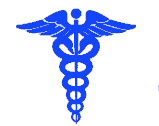Kidney stones are a common health issue that affects many individuals, yet there are numerous myths and misconceptions surrounding this painful condition. In Dubai, where lifestyle factors and dietary choices can significantly impact kidney health, it’s essential to differentiate between fact and fiction. This blog aims to debunk some of the most prevalent myths about kidney stones, helping you make informed decisions regarding your health.
Myth 1: Only Men Get Kidney Stones
Fact: While it’s true that men are more likely to develop kidney stones than women, the gap has narrowed significantly in recent years. Women are increasingly experiencing kidney stones, especially during their reproductive years. Factors such as hormonal changes, pregnancy, and diet contribute to this rising trend among women.
Myth 2: Drinking Less Water Can Prevent Kidney Stones
Fact: In reality, dehydration is one of the leading causes of kidney stone formation. Drinking adequate water—at least 2 to 3 liters daily—can help dilute urine and prevent the concentration of minerals that lead to stones. Staying hydrated is crucial, especially in Dubai’s hot climate, where fluid loss is more significant.
Myth 3: All Kidney Stones Are the Same
Fact: Kidney stones can vary significantly in composition, with the most common types being calcium oxalate, uric acid, struvite, and cystine stones. Each type has different causes, dietary influences, and treatment options. Understanding the type of stone you have is vital for effective prevention and treatment.
Myth 4: Alcohol and Beer Help Prevent Kidney Stones
Fact: A common myth suggests that alcohol and beer can help dissolve kidney stones. However, this is misleading. While moderate alcohol consumption may have some health benefits, excessive intake, particularly from beer—which can be high in oxalates—can actually contribute to kidney stone formation. High oxalate levels can increase the risk of calcium oxalate stones. It’s essential to consume alcohol in moderation and focus on staying well-hydrated with water.
Myth 5: Milk and Dairy Products Are Harmful
Fact: Contrary to the belief that milk and dairy products exacerbate kidney stones, they can actually be beneficial. Dairy products are a good source of calcium, which is important for bone health and can help bind oxalates in the intestines, potentially reducing the risk of calcium oxalate stone formation. However, moderation is key; individuals should consult their healthcare provider for personalized dietary advice.
Myth 6: Tomatoes Should Be Avoided
Fact: Tomatoes are often mistakenly thought to contribute to kidney stone formation due to their acidity and oxalate content. However, tomatoes can be part of a healthy diet and may help provide hydration and essential nutrients. Including tomatoes in moderation can be beneficial, especially when balanced with other foods low in oxalates.
Myth 7: Vegetables with Seeds Are Harmful
Fact: Another prevalent myth is that vegetables with seeds, such as cucumbers, squash, and bell peppers, should be avoided due to their supposed contribution to kidney stones. In reality, these vegetables are generally low in oxalates and provide important nutrients and hydration. They can be part of a balanced diet that supports kidney health. It’s crucial to focus on overall dietary patterns rather than singling out specific foods without scientific backing.
Myth 8: Vitamin C Tablets Are Helpful for Preventing Kidney Stones
Fact: While vitamin C is essential for overall health, excessive intake, particularly from supplements, may increase the risk of developing kidney stones, especially calcium oxalate stones. High doses of vitamin C can be metabolized into oxalate, contributing to stone formation. It’s best to obtain vitamin C from natural food sources, such as fruits and vegetables, rather than relying on supplements. Always consult a healthcare provider before starting any new supplement regimen.
Myth 9: Rice Should Not Be Taken
Fact: Some believe that rice should be avoided due to its carbohydrate content and potential contribution to kidney stones. However, rice, especially when consumed in moderation, can be part of a balanced diet. It is low in oxalates and provides energy and essential nutrients. Whole grain varieties can also contribute to overall health. It’s important to focus on a balanced diet rather than eliminating specific foods without evidence.
Myth 10: Kidney Stones Can’t Be Prevented
Fact: While some people may have a genetic predisposition to kidney stones, many cases can be prevented through lifestyle changes. Staying well-hydrated, eating a balanced diet low in salt and animal protein, and avoiding excessive oxalate-rich foods can significantly reduce the risk of stone formation.
Myth 11: You Only Get Kidney Stones If You Eat Too Much Calcium
Fact: While excessive calcium can contribute to some types of stones, getting enough calcium from dietary sources is essential for overall health. Low dietary calcium can actually increase the risk of calcium oxalate stones. It’s crucial to maintain a balanced intake of calcium and oxalates and consult a healthcare provider for personalized advice.
Myth 12: Pain from Kidney Stones is the Same for Everyone
Fact: The pain associated with kidney stones can vary greatly among individuals. Factors such as stone size, location, and individual pain tolerance play significant roles. Some may experience excruciating pain, while others may have milder symptoms. Regardless of the intensity of pain, it’s crucial to seek medical advice from a specialist like Dr. Anurag Kumar in Dubai for appropriate diagnosis and treatment.
Myth 13: Kidney Stones Don’t Affect Children
Fact: While less common, kidney stones can and do occur in children. Factors such as dehydration, dietary choices, and underlying medical conditions can contribute to stone formation in younger individuals. Awareness and early intervention are key to managing this condition effectively.
Conclusion
Understanding the myths and facts about kidney stones is crucial for effective prevention and management. Whether you’re experiencing symptoms or simply want to improve your kidney health, consulting a qualified urologist like Dr. Anurag Kumar in Dubai can provide valuable insights and tailored treatment options.
If you have concerns about kidney stones or want to learn more about prevention and treatment, contact Dr. Anurag Kumar at Aster Cedars Hospital in Dubai for expert care and advice.

